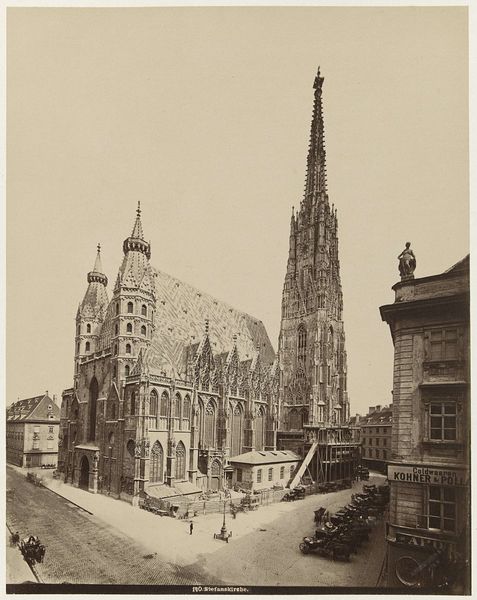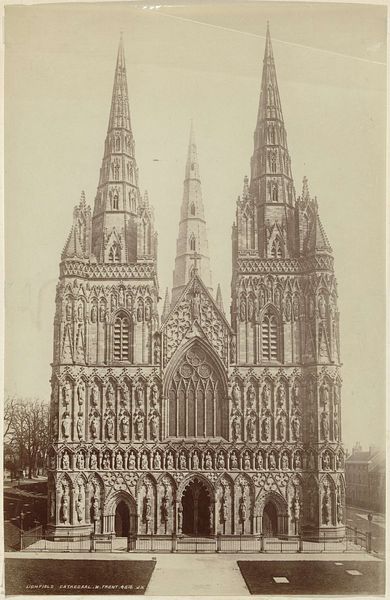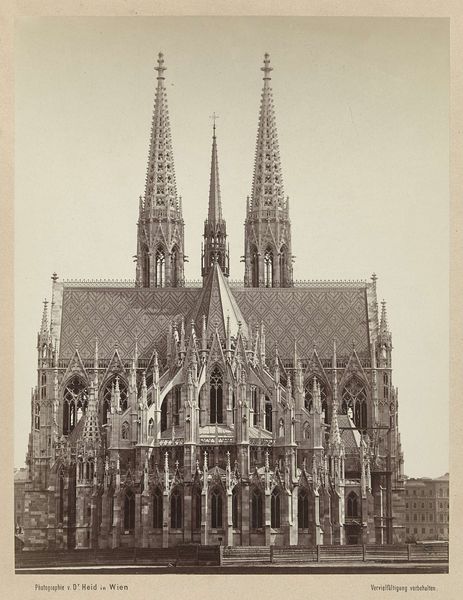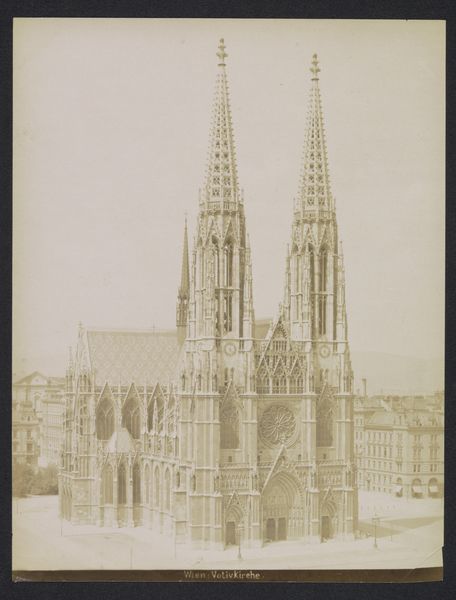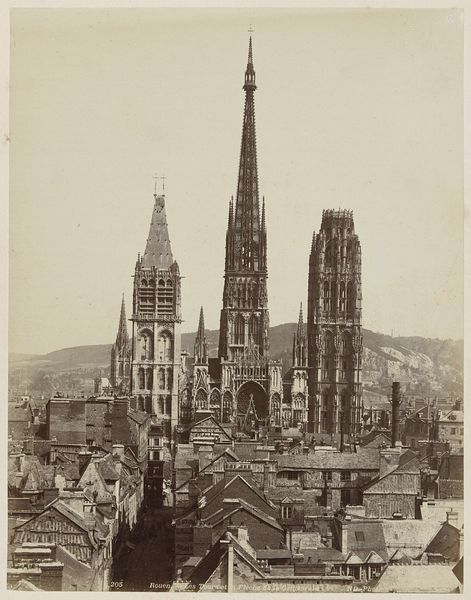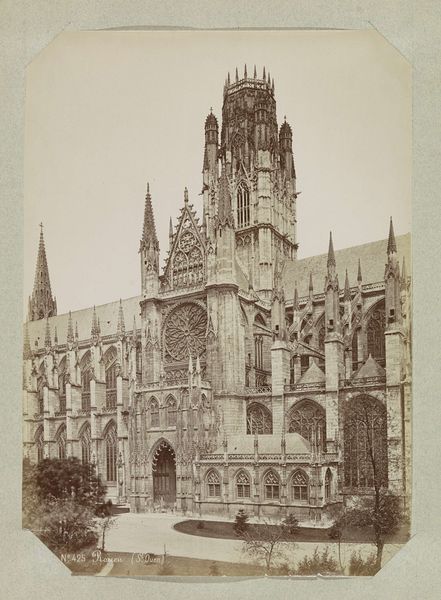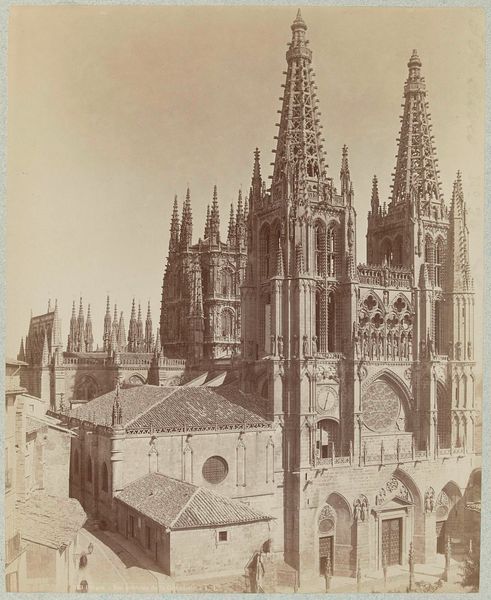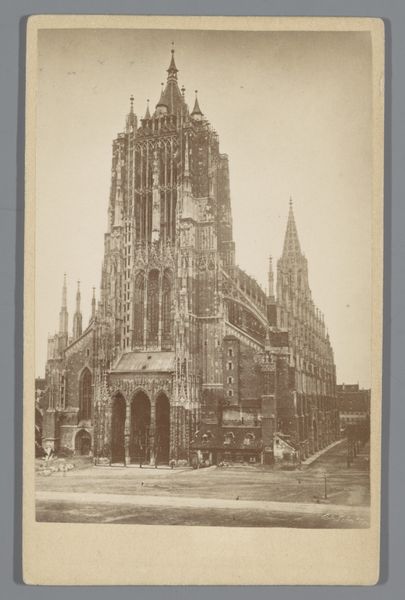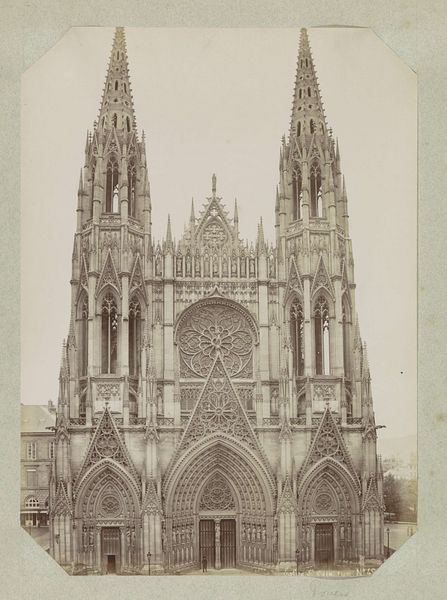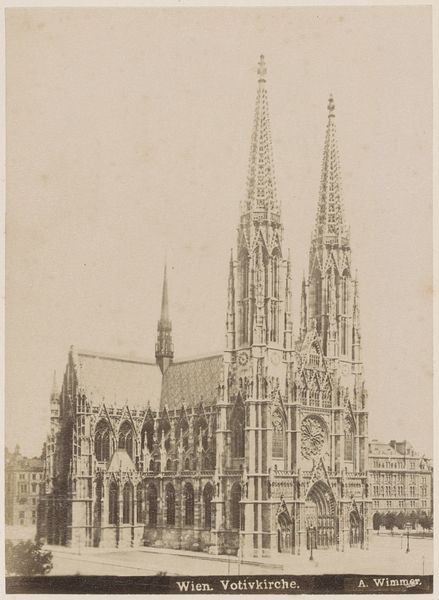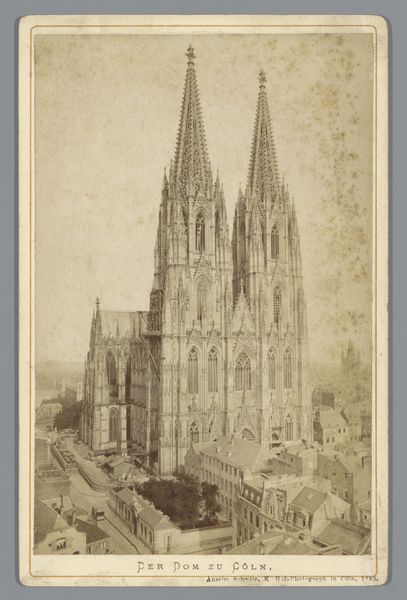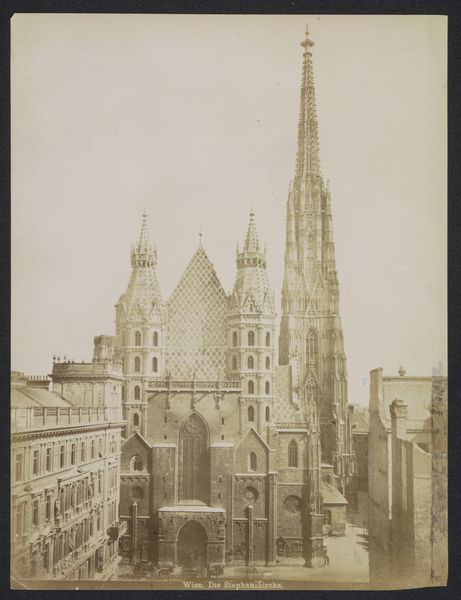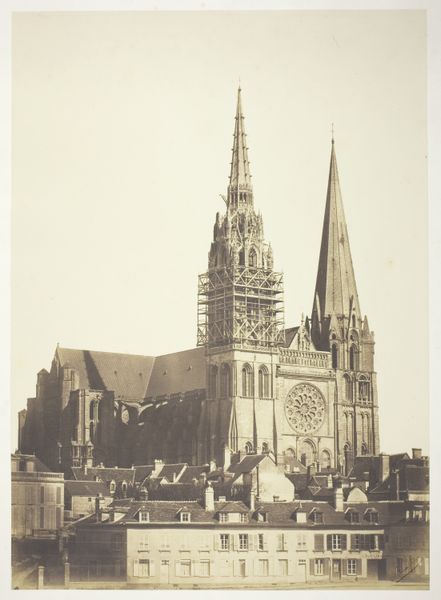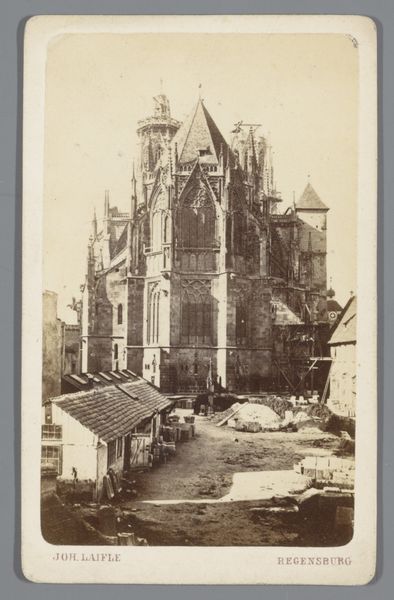
daguerreotype, photography, gelatin-silver-print, architecture
#
aged paper
#
toned paper
#
daguerreotype
#
historic architecture
#
photography
#
natural colour palette
#
gelatin-silver-print
#
cityscape
#
watercolor
#
architecture
Dimensions: height 355 mm, width 269 mm
Copyright: Rijks Museum: Open Domain
Curator: This gelatin silver print captures a view of St. Stephen's Cathedral in Vienna, taken by Hermann Heid sometime between 1865 and 1891. Editor: Immediately, I'm struck by the sheer verticality of the composition. The spire, in particular, dominates, almost piercing the sky. And this subdued, almost sepia tone gives it such a unique antique presence. Curator: Yes, Heid’s choice of gelatin silver perfectly complements the Gothic architecture, emphasizing the texture of the stone and the intricate details of the cathedral's facade. I'm intrigued by the complex layering of the towers and the geometric precision of the roof. Editor: Looking at the carriages lining the square, it makes you consider the sociopolitical power represented by such monumental architecture at that time. Religious spaces were always more than just that. Curator: Indeed, the photograph's technical composition is masterful. Heid uses light and shadow to define the architectural forms, drawing our eye upward. This perspective emphasizes the craftsmanship inherent in this feat of engineering. Editor: But what of the human cost? How many labourers died building such elaborate structures? Was Heid interested in portraying this perspective through the sheer size of the architecture against the urban space, suggesting the weight and influence of religious institutions on city life? Curator: That's certainly one interpretation. But I would suggest that we appreciate Heid's sophisticated deployment of scale and perspective to amplify the aesthetic presence of this famous European landmark. His technical control transforms this imposing architectural body into a work of striking visual harmony. Editor: And the subtle gradations of tone invite deeper reflection on our relationship to architectural legacies as markers of cultural memory and social control. It is more than just capturing symmetry and aesthetics, but really documenting complex issues. Curator: A beautiful, compelling document that brings together aesthetic ambition with meticulous historical accuracy. Editor: Precisely. Let us think about it critically.
Comments
No comments
Be the first to comment and join the conversation on the ultimate creative platform.
